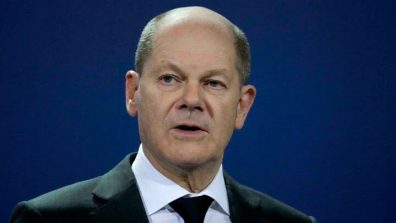Ban children of Russian officials from studying abroad, says business activist

“I hold that a ban on studying in foreign institutes and universities for children of Russian civil servants would help many people to give a new estimate to the quality of modern education in Russia,” Rakhman Yansukov, the president of the Association for Development of Business Patriotism, wrote in an address quoted by TASS.
“I also think that the knowledge received by the officials’ children in Russian educational establishments would become a guarantee that they develop into real patriots of their country,” Yansukov added.
The agency reported that Yansukov had sent the letter to major media outlets and also to State Duma Chairman Sergey Naryshkin and the heads of four caucuses in the Russian lower house.
Yansukov did however allow for a number of exceptions from the ban, such as for practical training abroad for no longer than six months or lifting the ban in cases when the desired education can be only received in a foreign institution.
In 2013, Russia introduced the law “On Civil Servants’ Foreign Assets” that banned members of parliament, senior officials, and top managers of state corporations and the Central Bank from holding accounts in foreign banks and owning securities of foreign companies. The restriction also extends to spouses and underage children.
The initial draft of the asset ban included real estate, but MPs removed it at the debating stage, saying that many Russian officials have possessed country homes, apartments, and land in neighboring countries since Soviet times, and that making them sever these ties would be unjust.
Several attempts were subsequently made to expand the ‘patriotic’ motion.
In 2014, MP Evgeny Fyodorov, representing parliamentary majority party United Russia, suggested fast-tracking a bill on banning leading Russian politicians from owning foreign real estate. He claimed such a move would make the country less vulnerable to outside pressure and threats of sanctions.
President Vladimir Putin signed a decree in 2015 ordering Russian officials of all levels to use only Russian airlines or airlines from members of the Eurasian Economic Union for business trips. The EEU is a Russia-led economic bloc that also includes Kazakhstan, Belarus, Armenia and Kyrgyzstan. Exceptions are allowed if EEU airlines do not fly to officials’ desired destinations.
In July this year, Prime Minister Dmitry Medvedev approved a plan under which federal bodies of executive power as well as state-owned, non-budget funds must switch to Russian-made software in three years’ time. Again, exceptions are allowed if the programs necessary for the state agencies’ work are not produced in Russia.









